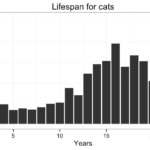Does Cinnamon Hurt Dogs
Cinnamon is a popular spice that many of us use in our daily lives. It is known for its sweet and warm flavor, which makes it an excellent addition to baked goods, coffee, tea, and even savory dishes. However, while cinnamon may be safe for humans, some pet owners have expressed concerns about whether or not their dogs can safely consume cinnamon.
So, does cinnamon hurt dogs? The answer to this question is not straightforward. While cinnamon is not toxic to dogs, it can cause health problems if consumed in large quantities. Additionally, certain types of cinnamon may be more harmful than others. In this article, we will explore the potential risks associated with feeding your dog cinnamon and provide you with all the information you need to keep your furry friend safe.
What Is Cinnamon?
Cinnamon is a spice derived from the bark of trees belonging to the Cinnamomum family. There are two main types of cinnamon: Ceylon cinnamon (also known as “true” cinnamon) and cassia cinnamon. Ceylon cinnamon has a milder taste and aroma and contains lower levels of coumarin (a natural substance found in some plants). Cassia cinnamon, on the other hand, has a stronger taste and smell and contains higher levels of coumarin.
Can Dogs Have Cinnamon?
Yes, dogs can have cinnamon in moderation. Small amounts of Ceylon or cassia cinnamon are generally considered safe for dogs to eat. However, it’s essential to note that dogs have different digestive systems than humans, so they may react differently to certain foods or spices.
Potential Risks of Feeding Your Dog Cinnamon
While small amounts of cinnamon are unlikely to harm your dog, consuming large quantities can lead to health problems. Some potential risks associated with feeding your dog too much cinnamon include:
1. Upset Stomach
Dogs that consume too much cinnamon may experience digestive issues such as vomiting, diarrhea, or abdominal pain. Additionally, cinnamon can irritate the lining of your dog’s stomach, leading to inflammation and discomfort.
2. Liver Damage
Cinnamon contains coumarin, which can be harmful to your dog’s liver if consumed in large amounts. Cassia cinnamon has higher levels of coumarin than Ceylon cinnamon, making it more likely to cause liver damage if ingested frequently.
3. Respiratory Issues
Inhaling cinnamon powder or dust can cause respiratory problems in dogs. If your dog sniffs cinnamon powder or accidentally inhales it while eating, they may experience coughing, sneezing, or difficulty breathing.
How Much Cinnamon Is Safe for Dogs?
The amount of cinnamon that is safe for your dog depends on their size and weight. As a general rule, small dogs should consume no more than 1/8 to 1/4 teaspoon of cinnamon per day, while larger dogs can have up to 1/2 teaspoon per day. It’s crucial to introduce cinnamon slowly into your dog’s diet and monitor them closely for any signs of adverse reactions.
How Should You Feed Your Dog Cinnamon?
If you decide to give your dog cinnamon, there are a few things you should keep in mind:
1. Use Small Amounts
Start with small amounts of cinnamon and gradually increase the dosage over time. This will help your dog’s digestive system adjust to the new spice and prevent any adverse reactions.
2. Choose Ceylon Cinnamon
Whenever possible, choose Ceylon cinnamon over cassia cinnamon. While both types are safe for dogs when consumed in moderation, Ceylon cinnamon contains lower levels of coumarin and is less likely to cause liver damage.
3. Avoid Powdered Cinnamon
Avoid feeding your dog powdered cinnamon as it can be more challenging to digest and may irritate their respiratory system if inhaled.
4. Mix It With Food
Mix the cinnamon with your dog’s food or treats instead of giving it to them directly. This will help mask the spice’s taste and make it more palatable for your dog to eat.
Conclusion
In conclusion, cinnamon is generally safe for dogs when consumed in moderation. However, it’s crucial to introduce this spice slowly into your dog’s diet and monitor them closely for any signs of adverse reactions. Additionally, always choose Ceylon cinnamon over cassia cinnamon whenever possible and avoid feeding your dog powdered cinnamon. By following these guidelines, you can safely incorporate cinnamon into your dog’s diet and enjoy all its health benefits without putting their well-being at risk.



